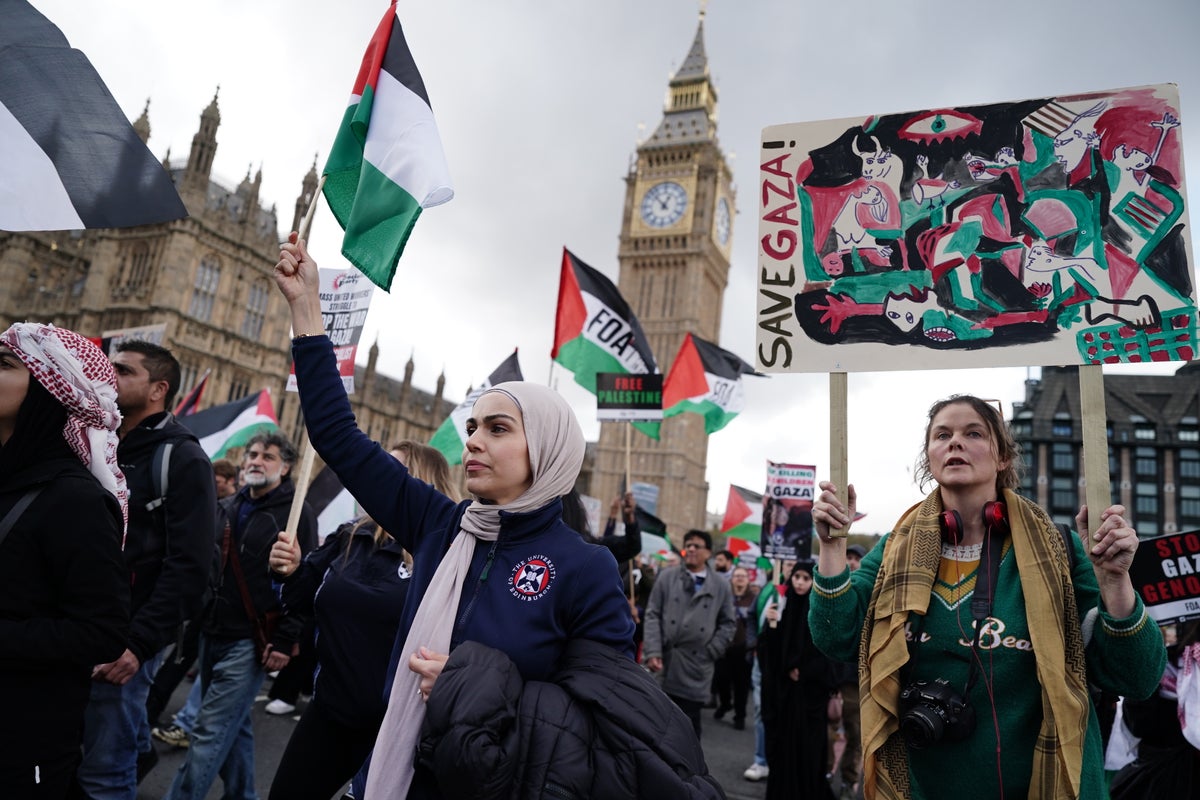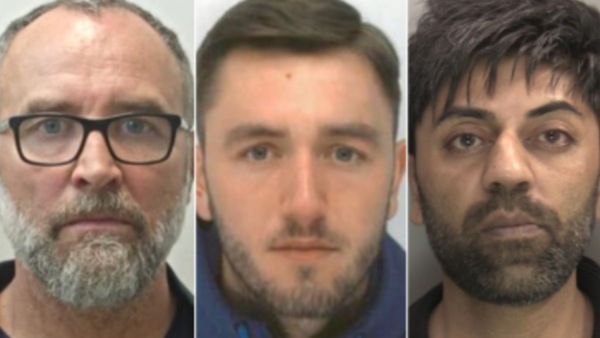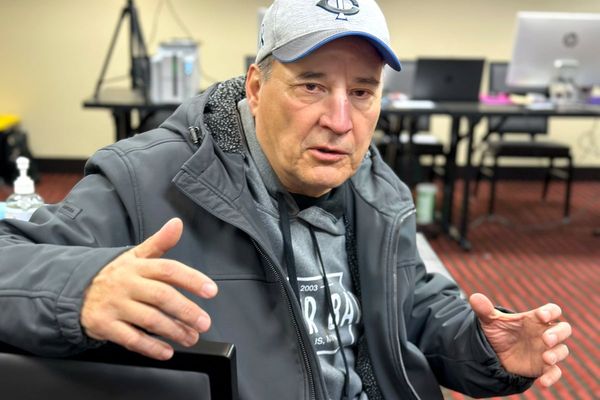
Rishi Sunak’s security minister has sparked a ferocious row after he asked the Metropolitan Police and the Mayor of London to halt pro-Palestine protests taking place in central London on Remembrance weekend.
Tom Tugendhat has said the demonstrations would not be “acceptable” and were “a matter of great concern to me”.
But he was accused of “posturing” by Labour’s London mayor Sadiq Khan, who said only government had the power to ban marches.
And march organisers accused ministers of “at worse an incitement to public disorder”.
Mr Tugendhat revealed that he had written to the Met Police, Labour’s mayor of London Sadiq Khan and Westminster Council urging them to look at what powers they have to stop a rally on Saturday 11 November.
Remembrance Day is on Saturday this year, with the traditional Remembrance Sunday services the next day.
Mr Tugendhat told BBC Breakfast: “Let’s be clear, the Palestinian Solidarity Campaign has said that they want to march on Remembrance Day or Remembrance Sunday – and that is a matter of great concern to me.”
He added: “It is a moment where we remember those we lost, and I think for the whole country the Cenotaph is sacred ground and the idea that on a day like Remembrance Day you would have a protest going past it, I don’t think that is acceptable.”
However, the Met Police has made clear that protest groups do not have any plans to march on Remembrance Sunday on 12 November – although a significant demonstration is expected on the Saturday, known as Armistice Day.
And commissioner Sir Mark Rowley has promised to “ensure” any demonstrations will not interfere with Remembrance weekend events. He said remembrance weekend marks a “major policing event” and said officers will secure it from any threats including “problems caused by protests planned or spontaneous”.
Pressed by the London Assembly on Thursday if he can “guarantee” a plan to keep events separate in case of unplanned marches in Whitehall, he said: “It’s a major security event from a policing perspective. It’s a national moment of reflection and remembrance.”
London has seen pro-Palestine marches each weekend since the 7 October Hamas attack and Israeli bombardment of Gaza— (Anadolu via Getty Images)
Tens of thousands of demonstrators calling for an immediate ceasefire in Israel’s attacks on Gaza are planning to take to the streets of London on Armistice Day on Saturday, 11 November.
And organisers of the demo have pledged to avoid the Whitehall area where the Centotaph war memorial – the focus of national remembrance events – is located.
The Palestine Solidarity Campaign (PSC) said it would “build for the next national march on November 11”. PCS director ben Jamal said the march on Armistice Day would not be held in Whitehall. “We will be holding a protest elsewhere in London.”
Security minister Tom Tugendhat— (PA Wire)
Friends of Al-Aqsa (FOA) is preparing to bus protesters from Leicester to London on the Saturday and said it expected hundreds of thousands of people to take part in the demonstration organised by a coalition of groups.
Ismail Patel, FOA spokesman, said: “We definitely will not be at the Cenotaph. We understand the sensitivity of the date.”
The Met has vowed to use all its powers to stop any disruption of weekend Remembrance commemorations amid ongoing pro-Palestinian protests.
There are fears the march could disrupt the two-minute silence on 11 November commemorating the war dead, and the Festival of Remembrance at the Royal Albert Hall – with the latter performance usually attended by members of the royal family.
Met Police Commissioner Sir Mark Rowley said he is “deeply concerned” about the effects of protests on day-to-day local policing and admitted he may have to look to other forces to help deal with the ongoing action.
“We are starting to look at what point we need to look for mutual aid from other forces and change our approach to resourcing this to make it sustainable,” he told the London Assembly.
People protest during a recent march for Palestine in London— (EPA)
Mr Tugendhat said he had asked Scotland Yard and the London mayor’s officer to “consider what options they have available, because personally I don’t think this is an appropriate moment for a protest”.
But sources at Mr Khan’s office indicated that it does not have the power to ban protests or marches in London, pointing out that it was up to the government to prohibit particular demonstrations.
The Public Order Act 1986 allows the home secretary to ban protests from certain areas if the Met believes there is a disorder risk.
Home secretary Suella Braverman has called pro-Palestine rallies “hate marches”, claiming they had featured “a large number of bad actors” behaving in “utterly odious” way. Ms Braverman also suggested she wanted the Met should do more to crack down on antisemitism.
On 4 November, the Stop the War coalition is calling for a nationwide “Day of Action for Palestine” around the country. Meanwhile, Stand Up to Racism and Extinction Rebellion London are organising a “Stop Braverman, Stop the Hate” march outside the Home Office.
Ms Braverman drew criticism when she warned that a “hurricane” of mass migration is coming, in her speech to the Conservative party conference last month.







